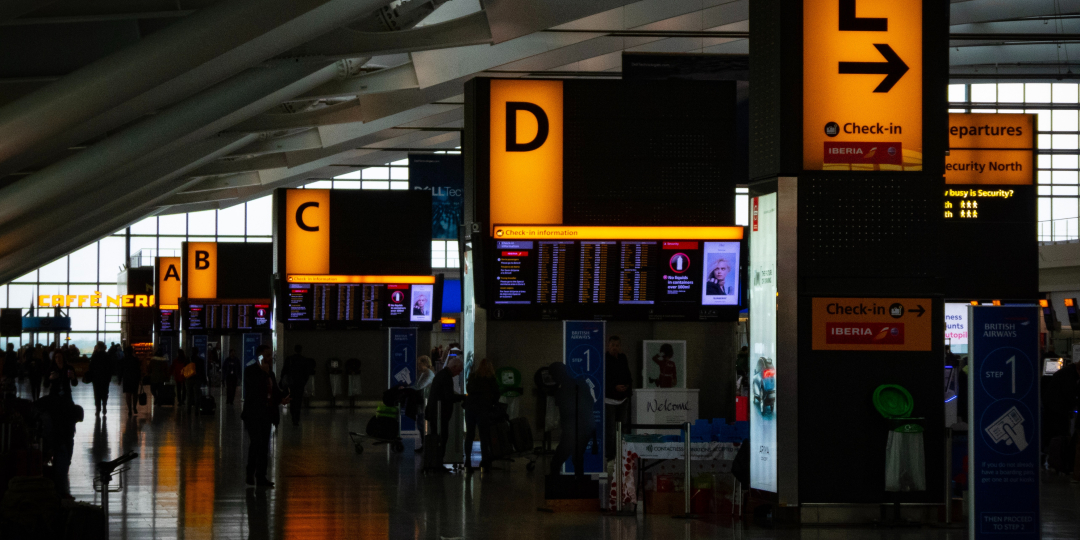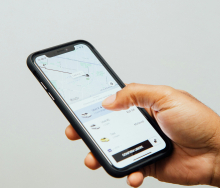Traditional paper passports may soon become obsolete in UK airports as they roll out facial recognition technology for holders of citizenship of countries other than the UK and the EU.
UK’s Border Force now plans to expand the eGates network currently used by UK airports for UK and EU citizens only.
While South African passport-holders will still need visas to enter the UK, visa-free travellers from countries outside the UK will be obliged to fill in ETAs (Electronic Travel Authorisations) before travel. The visa information or ETA data will inform the biometric systems of the eGates through facial recognition technology being matched with identity and with the passport information entered when the traveller applied for the ETA. But all sources agree that the traveller still needs to carry their passport.
ETA is currently in force for Qatari nationals but from February 1 this year, it will be rolled out for nationals of Bahrain, Kuwait, Oman, United Arab Emirates, Saudi Arabia and Jordan. Other counties whose citizens enjoy visa-free travel to the UK should expect the ETA system to have been rolled out completely by the end of 2024.
The eGate technology will track how long a traveller has spent in the UK and will recognise if someone has overstayed the permitted number of days.
UK Border Force Director General Phil Douglas told The Times of London that the system of eGates combined with ETA meant that Border Force would know a lot more information about people upfront. “We will know if they've been in the UK before. We'll know what their compliance with immigration laws is. And we'll know if there's any records of them on our security systems. So there will be some people who won't be getting on the plane."
Douglas added that the goal was to speed up the flow of airport traffic by using a more frictionless facial recognition system than the current one.
Biometrics are everywhere!
But globally, there is a growing sense of unease at the proliferation of contactless access in many facets of life, including travel.
Airports are a natural choice for contactless access, especially in view of the endless immigration queues reported by travellers using airports across the world as travel surged and is still surging post-COVID.
Some creative approaches are under way. In seven international US airports, including Seattle-Tacoma and Washington Dulles, travellers who are members of US Customs and Border Protection’s Global Entry Program are entitled to bypass immigration queues by taking a selfie on arrival using its new phone app. The selfie is matched with the agency’s facial biometrics database.
Cruise lines too are using biometrics. Facial recognition is being used by some lines, “to improve passengers’ experience”. Carnival Cruises has a system that takes a photo of passengers each time they get on or off the ship. This way the ship’s crew can know who is on board, and can also ensure only authorised people come aboard. This facial recognition technology also allows passengers to receive pictures of themselves taken by on-board photographers, instead of searching for themselves in a range of pics. Holland America Line says facial recognition has sped up its check-in process by 40%.
Theme parks, resorts and some hotels are starting to use facial recognition for entry and purchases.
But is it all foolproof? Some security experts are alarmed by the proliferation of biometric facial recognition and say that digitisation at this scale is not immune to glitches and more alarmingly, it could be used by criminals for their own criminal purposes.
What’s to fear?
Some of the issues that make biometric access less than popular in certain quarters are…
-
Adam Schwartz, the primary privacy litigation director for the Electronic Frontier Foundation, told the Washington Post: "Unlike other numbers that can be changed if we're a victim of a fraud or whatnot, we have our biometrics for life. The EFF is a civic activist organisation which fights illegal surveillance. A big concern is the fact that, in the event of an identity being stolen, impersonation could follow, even incorporating deepfake video. While a password may be reset, biometric data cannot easily be changed.
-
The New York Times reported that private companies’ management of facial recognition data was a concern for the Project on Surveillance Oversight at the Electronic Privacy Information Center. “Companies could be hacked or could turn the data over to government entities, who might use it for surveillance. Some might even sell customers’ biometric information or find other ways to profit off it and bury those intentions in the fine print,” said Director Jeramie D Scott.
-
Facial recognition software has been shown to be less accurate for certain demographic groups.
-
The algorithms are typically not shared or tested publicly. “So we need to take the company’s word about their accuracy,” said Scott.














